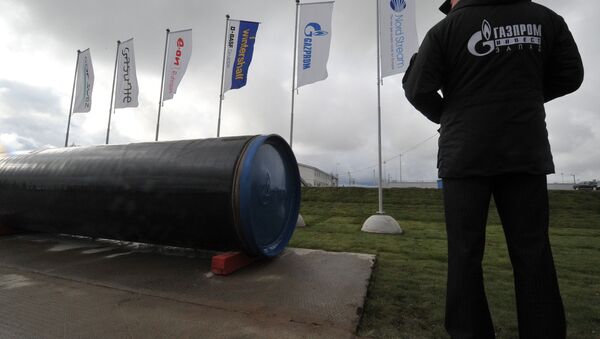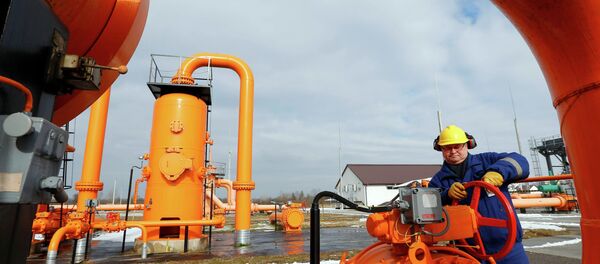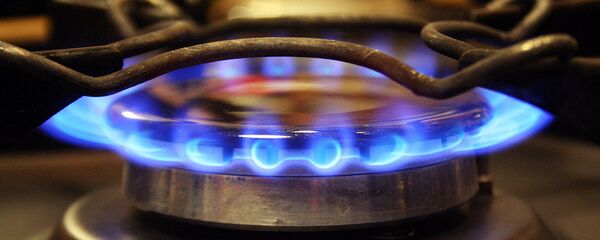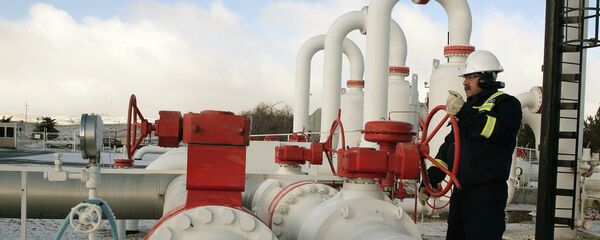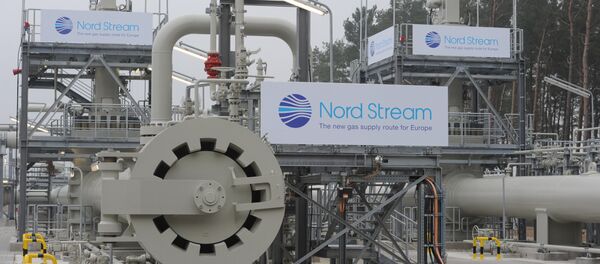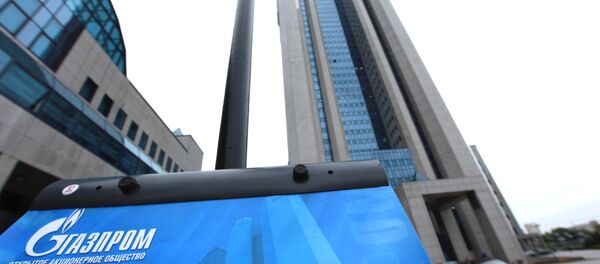The company also predicts that the share will rise in the near future since the number of ageing coal power plants is decreasing and environmental standards are increasing.
In the coming years, Europe is likely become even more dependent on gas imports, first of all because of the depletion of its own gas fields. The EU should seek to diversify its natural gas supplies, according to the report.
According to the company’s analysts, Norway could play the role in diversification. In addition to Russia and Algeria, Norway is one of Europe’s biggest suppliers of natural gas. However, according to the report, Russian natural gas is much "dirtier" and "dangerous" for the environment.
If the EU replaces Norwegian gas with Russian gas it will significantly increase greenhouse gas emissions by up to 97 million tons according to estimates. At the same time, if Europe prioritizes Norwegian gas, emissions will be nearly 53.9 million, the report read.
The report claimed that Russian gas is environmentally dangerous due to the poor condition of the Russian gas transportation system designed in the Soviet era and the large distance between the oil fields and the consumer. If the pipeline is damaged methane leaks are very dangerous for the environment.
In 2015, the European Commission said that 1.77 percent of Russian methane shipments are lost during transportation through the pipelines while Norway’s supplies lose only 0.01 percent.
Nevertheless, Abhishek Kumar, senior expert at Global Gas Analytics, questioned the report’s conclusions.
"I don’t think that referring to the European Commission’s report is a sufficient proof. A study is needed to find the real reason of those methane leaks and where they happen after natural gas crosses the Russian border," Kumar told the Russian new website Life.ru.
In addition, the World Wildlife Fund (WWF) did not agree with the Norwegian report.
Significant differences for assessing the environmental safety of products from one or another company often stem from different evaluation methods, Alexei Knizhnikov, head of the environmental policy at the WWF, said.
"For example, according to the UN Framework Convention on Climate Change, methane emissions in Russia are eight times higher than estimated by Russian specialists. The reason is different indexes applied to countries depending on their level of economic development," he explained.
According to him, the UN applies developing countries indexes to Russia. In fact, greenhouse emissions while transporting gas from Russia are the same as in Europe.
"It’s strange that they are concerned about the safety of our pipelines. First, the Russian pipelines were certified in Europe by the Norwegian company DNV. Second, one of Gazprom’s pipelines was built with German-made pipes. So, such claims are surprising," he said.
Norwegian political analyst and specialist in Russian affairs Bjorn Nistad underscored that the report looks biased.
"Probably, this is an attempt to pressure the European Commission over Nord Stream-2," he said.
Since it was announced, Nord Stream-2 has faced opposition from many European and United States officials who labelled the pipeline as "controversial."
The project presumes building two pipeline strings, with a total capacity of 55 billion cubic meters of gas a year, from Russia to Germany under the Baltic Sea.
One of the main goals of the planned pipeline is to cut reliance on Ukraine in delivering Russian gas to Europe.
Recently, Mario Mehren, Chairman of the German energy firm Wintershall, said that the Nord Stream-2 will be crucial for Europe’s energy security.
"Nord Stream-2 is a project that will maintain energy security not only in Germany but in the entire Europe. It will provide direct and cheap supplies of Russian natural gas to Europe," Mehren said in an interview with Russian online publication Gazeta.ru.
Some American oil and gas experts also said that the THEMA’s report is biased and more about politics than Europe’s energy needs.
"In the light of Russia’s plan to build a new pipeline to Europe and thus increase its share in the European energy market, we would see a growing number of reports criticizing Russia’s energy policy and technologies," Robert Pattern from Energy Analytics Group told Life.ru.
Mehren also agreed that the situation with Nord Stream-2 is political.
"Politicians should be less emotional about the initiative because first of all Nord Stream-2 would give additional guarantees for Europe’s energy security," he said.
This is nothing more but an attempt by European officials and companies to justify their political decisions by referring to technologies, Golunov pointed out.
"If we look the quality of gas we’ll see that there are no international standards. Moreover, there are no gas fields with the same characteristics of gas. Nord Stream transports gas from Yamal fields. This gas is better than Norwegian gas," he said.
According to outlooks, the price of Norwegian gas will further rise. According to a Statoil report, production cost of one million BTUs of gas was $1.04 against $0.40 for Gazprom in 2015.
Another problem is that in order to be leader in the European market, Norwegian companies will have to explore new gas fields.
